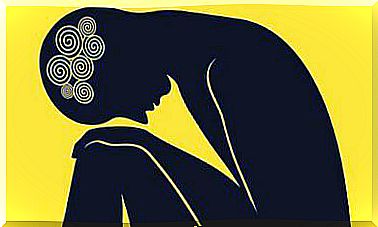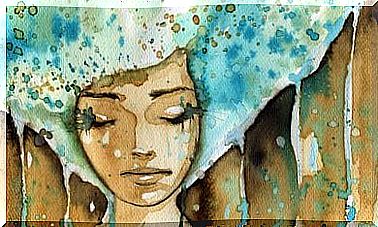Mental Disorder, Victim Of A Perverse Social Vision

The work of psychologists has been attacked many times and on countless fronts. To our great regret, not always unfairly. Popular myths, tavern jokes, internal debates, ignorance … Not to mention the intrusion of work, the reproduction of models and laziness in establishing a solid methodological basis for investigating mental disorder.
This problem did not have trivial consequences. This has had a direct impact on the social concept of mental disorder and on all those who suffer from it. In addition, in psychology there is the false paradox of experiential learning. However, without having studied medicine, no one would have the idea to operate on appendicitis.
And yet, there are many who write about depression, validating their speech or their cookbook on the suffering they have once managed to leave behind. They even believe that a model, for them logical, contracted from personal experiences, can perfectly be extrapolated to everyone.

A different look at psychology
Until not long ago, those who came to seek advice from a friend were considered normal, and those who knocked on the psychologist’s door were considered fools. Consultations, diagnoses and interventions were hidden like dust under the carpet when visitors arrived.
The fear associated with confession was that of rejection, of becoming the center of gossip in the neighborhood. And in modern lifestyles, the fear of being the center of attention on social networks or messaging groups.
Fortunately, this is changing and the psychologist is gaining a greater place in society. Mental health is no longer just a guarantee of professional success. Emotional intelligence and the ability to delay rewards are also important.
But it goes further, psychology is a source of well-being. It allows you to know yourself and feel good. A mental investment, just as we do on a more physical level when we exercise regularly and take care of our diet.
Those who suffered most from this period of obscurity for psychology were people with mental disorders. Let’s take an example to better understand, a text fragment taken from a dialogue in Lousie Penny’s novel entitled Still Life .
This novel comes highly recommended for any reader who enjoys detective novels and appreciates stories in which the characters are there to teach us more. Here is an exerpt :
I take up this testimony from this literary psychologist, because it largely reflects a superficial social perception. I say superficial because the common denominator, the urge to seek help, does not come from loss, but from suffering.
A suffering which, on the one hand, is not exclusive to those who do not have the possibility of adapting. On the other hand, the use of a resource, such as a psychology consultation, is a sign of adaptation in most cases.

The patient as guilty of his mental disorder
The dialogue continues and reaches the most interesting and dangerous point. The psychologist / writer tells us:
In these lines, he makes a mistake when he refers to mental disorders. An error which, to a large extent, is still a myth: the idea that anyone who cannot find relief – a cure – for a mental disorder is actually lacking in willpower.
Because the secondary gains of the situation in which a patient with a mental disorder finds himself are usually powerful enough to defeat any attempt at intervention. In other words, the suffering does not reach such a degree that the patient considers adopting changes that would make their customs / habits / dynamics more adaptive.
We are talking about a very dangerous conceptualization of mental disorder. Either by omission or by commission. This view of reality suggests that the patient is guilty of his failure to recover. Being guilty / responsible would not be worthy of the attention he might deserve from his environment or the resources that the system might make available to him.
“When I want… everything can change”, more than one thinks. Perhaps one of the most perverse phrases. Let’s keep this in mind.










